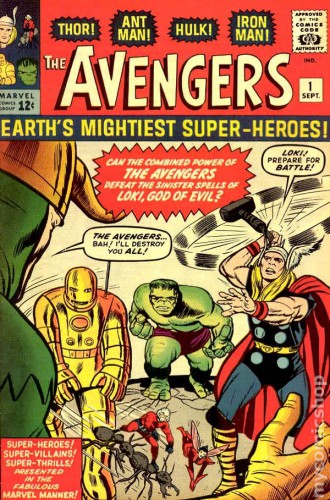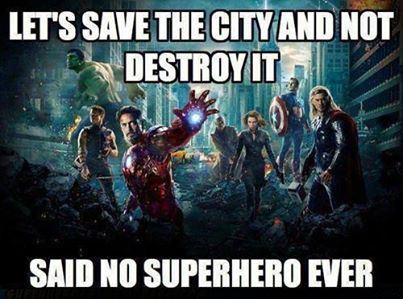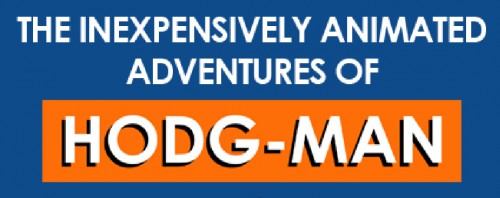
 This reflection comes to us from Tim Peoples.
This reflection comes to us from Tim Peoples.
I’m no hero, and that was brought home to me in a three-month binge of the Marvel Cinematic Universe (twelve films and three TV series…thanks very much, Age of Ultron marketing!).
Several works in the MCU follow a wider cultural trend of the deconstruction of the American male (ht DZ at the Love, Suffering, and Creativity conference), which shows us how low our anthropology should be. For example, the Iron Man trilogy is mostly about Tony Stark’s attempt to atone for war profiteering, and the third installment even provides a post-Iraq/Afghanistan meditation on post-traumatic stress disorder. Other iterations of the MCU, however, fully embrace the ascendant American male, a construct that posits that we can be true heroes if we just show risk-taking bravery. The two Captain America films, for example, are melodramas of American grit and sincerity. We can certainly all be so heroic, though it doesn’t hurt to have hyper intelligence, demigod powers, gamma radiation, majority equity in a weapons manufacturer, an encounter with a top-secret government super-soldier program, or a limitless amount of unaccountable government funding. Whether the central male is deconstructed or not, however, heroism (and powers and money and a magical hammer, etc., etc.) nevertheless wins the day and the girl in most of the MCU.
As a result, the most distinctive feature of the MCU—more than the thrilling entertainment value, hyperreal special effects, and implicit sexism—is where the viewer is situated. I could not place myself in the boots or supersuits of Thor, Stark, Cap, and Banner. I found myself constantly relating to all the people around them—the multitudes who became peripherally involved usually against their will and for the worse.
Part of the reason the MCU heroes are so unrelatable is that the films generally start in media res—the superhero already is super, and the origin story is skimmed over (e.g., Thor, The Incredible Hulk, Ant-Man). Even those with an origin story—Iron Man and Captain America: The First Avenger—begin with the title character having, respectively, fortune + genius and sincerity + Greatest-Generation bravery. This subverts one of the origins of comic books, namely, the dreams of misunderstood writers and artists about how great they could be if the world took them seriously (i.e., superpowers = creativity, intelligence, etc.). From the beginning, everyone takes every single superhero in the MCU seriously. There is no entry for the ordinary person, so we have to watch through the supporting actors’ eyes at best, the extras at worst.
 Another key component of the distance between viewer and hero is the much-debated “disaster porn” that is especially evident in the twin Avengers films but also present in the others (except Ant-Man, in which the decimated landscape is a child’s train table). Witness the battle of New York, the literal fall of a fictional pseudo-Russian city, the metaphorical and literal fall of SHIELD headquarters, a spaceship crashing into a British university…. The heroes battle while the civilians and their buildings and possessions and children are arbitrarily killed or saved in fantastic numbers. This, then, is where we as viewers find ourselves: we are not super, cannot aspire to be so, and are relegated to experiencing destruction or salvation by those who are much more powerful.
Another key component of the distance between viewer and hero is the much-debated “disaster porn” that is especially evident in the twin Avengers films but also present in the others (except Ant-Man, in which the decimated landscape is a child’s train table). Witness the battle of New York, the literal fall of a fictional pseudo-Russian city, the metaphorical and literal fall of SHIELD headquarters, a spaceship crashing into a British university…. The heroes battle while the civilians and their buildings and possessions and children are arbitrarily killed or saved in fantastic numbers. This, then, is where we as viewers find ourselves: we are not super, cannot aspire to be so, and are relegated to experiencing destruction or salvation by those who are much more powerful.
This is not at all new in the history of the superhero genre, but the astounding success of MCU has brought the issue into sharp relief. What is lost in backlash (e.g., body and cost estimates), however, is that this view of the superhero is a more accurate metaphor than that of the Good Citizen Saving the Day. In real life, peoples’ lives are upended for good or ill by the sin of the world all the time, everywhere. The superheroes of MCU, seen this way, are stand-ins not for our highest aspirations but for the myriad ways we lack control and stability.
Moreover, who among us would be a superhero if we had superpowers? Would we respond with sincere heroism (Cap), deep reform (Iron Man), or tortured guilt (Hulk)? We would not be any less fallen than we already are, a fact that argues strongly against us behaving like MCU heroes if we were given the chance.
If ever there was an artistic work that allowed a window for the viewer to don the cape, so to speak, it is John Hodgman’s segment on This American Life, “Invisible Man vs. Hawkman” (also, see “Act Three” of Ethan’s This American Gospel). Hodgman asks people to choose whether they would like to have invisibility or flight as their sole superpower. The responses do not inspire confidence in the human spirit:
Woman 1: I’d go into Barney’s. I’d pick out the cashmere sweaters that I like. I’d go to the dressing room. The woman says, how many items? I’d say, 5. I’d go into the dressing room. I’d put those five sweaters on. And I’d summon my powers of invisibility in the dressing room. I’d turn invisible. I’d walk out, leaving her to wonder why there’s a tag hanging from the door that says 5, and no person inside.
John Hodgman: So you’d become a thief pretty quickly.
Woman 1: Immediately. Until I had all the sweaters that I wanted, and then I would have to think of other things to do….
Man 4: …I don’t fight crime now, and people without superpowers do. Sure, in theory, yes. But you know, I’m not a—I mean, what can I do with this? Either one of those is, you need a whole package. There’s not much you can do with any one thing. I’d go to Paris, I suppose.
John Hodgman: That’s not being a superhero.
Man 4: Well, maybe I could be a Going to Paris Man, that’s sort of a superhero.
 Here, then, is the truth: we do have some power over our fate, and those of us in rich countries have a disproportionate share compared to everyone else. Even with our wealth, technology, education, and daily quiet times, though, we find ourselves all too often with no more control than the New Yorkers and pseudo-Russians and other red-shirts in the MCU. And if we had superpowers, we would not resist our vices any more than we do now:
Here, then, is the truth: we do have some power over our fate, and those of us in rich countries have a disproportionate share compared to everyone else. Even with our wealth, technology, education, and daily quiet times, though, we find ourselves all too often with no more control than the New Yorkers and pseudo-Russians and other red-shirts in the MCU. And if we had superpowers, we would not resist our vices any more than we do now:
Woman 1: First of all, I think that a lot of people are going to tell you that they would choose flight, and I think they’re lying to you. . . [I]f everybody were being perfectly honest with you, they would tell you the truth, which is that they all want to be invisible so that they can shoplift, get into movies for free, go to exotic places on airplanes without paying for airline tickets, and watch celebrities have sex.
John Hodgman: Anyone faced with this choice, in their heart of hearts, will choose invisibility.
Woman 1: Yes. Or they have this sort of inflated, heroic, mythical concept of themselves, and that, in fact, they’re not really giving it very much practical thought.
Then again, maybe I’m just the wrong person to ask. For the past 3 months, I’ve been Binge-Through-the-MCU Man. That’s not being a superhero any more than Going to Paris Man, but it’s the best I could do.

COMMENTS
4 responses to “Innocent Bystanders, Assemble! The Viewer’s Perspective in the Marvel Cinematic Universe”
Leave a Reply













Thanks very much for giving me the chance to contribute 🙂
Your point on the lack of origin stories raises an interesting idea. All superhero stuff these days is a franchise–that film genre low on risk and high on return. We must take whatever the franchise barons give us (for good or ill) and we’re not challenged, but we’re not given anything fresh either. In that light, blockbuster studios see us all as just the passive civilian witnesses to their spectacle of superpowers. It keeps us in shape to be sold to.
This cuts across more than just blockbuster studios. In a capitalistic culture, much power comes with huge size. And when a business gets huge, it’s easiest if they can divide people into market segments that in an idealized scenario, will fork over money for whatever is churned out. Of course, competition is supposed to keep things fresh, but the ancillary benefit of being a superhero-sized entity is the ability box in a competitor before they can actually compete.
Bottom line: just as the superheroes are projections of what the writers saw in themselves if they were just ‘taken seriously’ (i.e. given power in the market), so it goes with all businesses. And, knowing what we know about human brokenness, I think corporate endeavor, as a projection of the person/few people truly at the helm, should be held in suspicion that grows exponentially alongside its size and influence.
Hi Michael,
Thanks for adding your thoughts! You bring up a point that was only implicit in my post, which is that we should be skeptical of the superhero genre. I hadn’t considered that the skepticism could be driven by and extended to corporate influence.
I have never experienced Marvel Comics except as a corporate film studio, so I have no experience reading (in real time or reprint) the many hundreds of comic book issues that were primarily artist driven. While Whedon, Branagh, Favreau, et al almost certainly had some degree of creative control over the films, it is inevitable that a blockbuster film will be designed for immediate, widespread consumption. It is probably a bad sign, therefore, that the film companies designed these films without a relateable protagonist. Such a design suggests that we want to watch films that enforce the distance between the viewer and the hero. It could also be that large corporate entities actively enforce such a distance between the populace and the general population, though this explanation seems a bit too coordinated for me.
Here is my best guess about the relationship between corporate influence and the actual relationship between viewer and hero in the MCU: the characters are designed to be our aspirational selves. The studios are selling us a dream we would like to buy. If we could only be better at observing the little-l law more effectively, we would be so noble. The corporate studios, like all of us, have bought into the idea that we really achieve everything we want if we just show the courage and the bravery lurking inside us all along–hence the endings in which every heroes’ flaw is worked through. Somehow, though, the result is a series of films that somewhat accurately portrays our real place in relation to power (whether by superpower or corporate balance sheet).
Again, thanks!
Best regards,
Tim
[…] Marvel never fails to draw plenty of viewers (and sharp commentary). Here’s a humorous criticism of the “Universe” as a […]